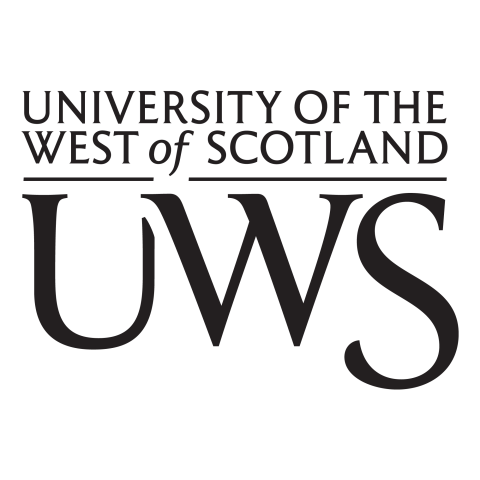
Every student in Scotland can vote: here’s why that should matter to educators
You may also like
Ten years ago, a referendum took place in Scotland to determine its future within the United Kingdom and an astonishing 85 per cent of people eligible to do so cast a vote.
It might be inferred that Scotland is a society very aware of the right to vote.
However, in the last elections for the Scottish Parliament in 2021, about 63.5 per cent of the electorate cast a ballot, meaning that more than one-third of those eligible chose not to vote. It’s not a bad turnout – but it’s hardly stellar either, particularly when you consider that there were areas in which turnout was closer to 50 per cent than 65 per cent and this was less than a decade after the high-water mark of the referendum.
- Voting counts: how to get more students to the ballot box
- Democratic assessment: why, what, and how
- Universities must promote pluralism to ward off threats to democracy
Nonetheless, it’s an improvement on turnout in past elections and, hopefully, the shape of things to come. But what role do we, as educators, play in elevating that figure?
As a professor of political science, there’s an assumption that I am constantly engaged with active students, all of whom are enthusiastically interested, informed and fully immersed in politics. However, as I teach across disciplinary boundaries within a School of Education and Social Science, I meet many students who are not interested in politics – and many of whom have never voted. I consider it my job, not just as a political scientist but as an educator, academic and member of society, to encourage everyone to exercise their democratic right.
This can be achieved through a combination of teaching and learning patterns and illustrating the impact politics has on students, collectively and as individuals.
Scottish power
Being in Scotland makes it especially easy to talk about voting. Pretty much everyone aged 16 and over in Scottish society can participate in the democratic process. If you are a legal resident of Scotland, irrespective of where you came from – or where you are going – you can vote in elections for our local authorities and in Scottish Parliament elections. I always try to bring this issue up early in any module. Many students are aware of it, but just as many are not.
Since 2020, if you are from Argentina or Australia, Namibia or the Netherlands, if you live in Scotland, you can vote in Scotland. This was a Scottish decision, taken in a Parliament that is still less than 25 years old. The existence of the Parliament itself was one brought about by votes in a referendum in 1997. The same goes for extending the right to vote to all residents from the age of 16 (although efforts to allow 16-year-olds to stand for election have recently been shelved). As you can imagine, our international students are often amazed by this and it certainly makes for a fascinating discussion with their Scottish-born peers.
Engage students in discussions on democracy
I actively engage with students around issues we consider in lectures, and ask how they would resolve them, what actions could be taken by society and what outcomes they would wish to see. I illustrate occurrences, some historical and some recent, where a nation’s path has been changed by political decisions. I point to individual examples of leaders and to examples of everyday people and use their stories too. It usually always comes back to politics and the decisions of elected officials.
I ask students to tell me about an event that they think about – big or small, local or global – and I ask them if things would have been different if other rules were in place or decisions had been made by those elected to lead. Then I point out who put those leaders in that role.
We discuss the issues, we debate limitations. At my university, just as in others, students discuss and debate the issue of rights and responsibilities. Some say they won’t vote as it does not change anything, or because “they”, the people standing for elections, are all the same. I say it is wonderful that they have the right not to vote, but that plenty of people do not have that right and may never do.
Talking about voting is not difficult, and not just when teaching politics or other social sciences. It can be done when talking about any aspect of modern society – and it should be. The idea of civic engagement is one of critical thinking, a key component of any university programme.
Make voting a habit
While we can talk about voting, we also have to encourage the act of voting as part of our mission to make our students good global citizens.
Research shows that if a person votes once, they are more likely to vote twice, and if they vote twice, then they are more likely to vote a third time. If they do that, then they usually become a lifelong voter. The habit of voting, like all good habits, is challenging, as it is easier to stay at home. Voting costs. It costs time and sometimes money, and can be a hassle, particularly if you consider the good old Scottish weather!
Democracy is not only messy but expensive, both at the individual and society level. But again, as educators we have to teach that the cost of democracy is an investment in the future. It is not difficult to show that the most unequal countries in the world are often not democracies.
In Scotland, there is a great opportunity to ensure voting is a habit that sticks from a relatively young age. As educators, we can play a pivotal role in this. Everyone at a Scottish university will be eligible to vote at a Scottish election – whether they know it or not. It’s our role to ensure that they do, and that they understand why it matters.
Murray Leith is professor of political science at the University of the West of Scotland.
If you would like advice and insight from academics and university staff delivered direct to your inbox each week, sign up for the Campus newsletter.




